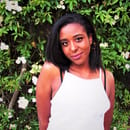Ever since Katherine Johnson was a little girl, she counted. Counted the dishes in her kitchen, counted the steps leading to her church, even counted the stars that made up the night’s sky. And despite what the world around her believed, Katherine knew her counting would take her amazing places in life. Katherine has paved the way for women interested in STEM, especially women of color. She was the first of her time in so many ways, and unfortunately, she did not receive half of the recognition and praise she deserved until the last decade of her life. This week, Katherine Johnson took her last breath at 101 years old. When we look at our world and how many advances continue to be made for women, it is important to remember remarkable people like Katherine, and why she is such a phenomenal force.
Katherine Johnson (born Creola Katherine Coleman) was born in White Sulfur Springs, West Virginia to a schoolteacher mother and farmer father. Johnson showed exceptional mathematical skills at an early age and couldn’t wait to start high school to continue to grow her knowledge of algebra and geometry. But because of West Virginia’s segregated education system, black students were not allowed to continue education past the eight grade. This did not stop Katherine Johnson’s parents, who moved their family to the town of Institute, where Katherine attended high school at the age of ten, going on to graduate at just fourteen. After entering West Virginia State and taking every math course the college had to offer, Katherine graduated. She became one of three African American students chosen to integrate public graduate schools. During this time, she got married and left the grad program to focus on being a schoolteacher and mother.
After hearing that the Langley center of the National Aeronautics and Space Administration (NASA) was hiring black women mathematicians, Katherine became part of a small circle of black women who specialized as computers. This circle included Dorothy Vaughan, the first black woman supervisor at NASA, and Mary Jackson, the first black woman engineer to work at NASA. Katherine worked consistently, calculating the trajectory that eventually led to the first American orbits of the Earth by Alan Shepard and later John Glenn, who personally requested that Katherine Johnson check the calculations of his orbital mission before taking off . Katherine Johnson’s research was used for the Apollo 11 Mission of 1969, putting the first men on the Moon. Katherine retired from NASA in 1986, and since, received countless honors, the Katherine G. Johnson Computational Research Facility, dedicated to her at NASA, and the 2015 Presidential Medal of Freedom was given to her by President Barack
Obama.
Katherine Johnson redefined the limits women are capable of going to and opened many doors for women of color interested in pursuing a career in the sciences. Even though Katherine spent the majority of her life being marginalized and segregated against, she had no intentions of letting that stop her from reaching for space and not settling for less. She once said, “I don’t have a feeling of inferiority, never have. I’m as good as anybody, but no better.” Katherine Johnson’s legacy is honored with a heavy heart, but which so much gratitude as well. She is an American hero who, despite the odds set up against her, brought the stars a little closer to Earth.
Katherine Johnson’s life story, along with Mary Jackson’s and Dorothy Vaughan’s, is told in the 2016 film “Hidden Figures”, based on the novel of the same name by Margot Lee Shetterly.


